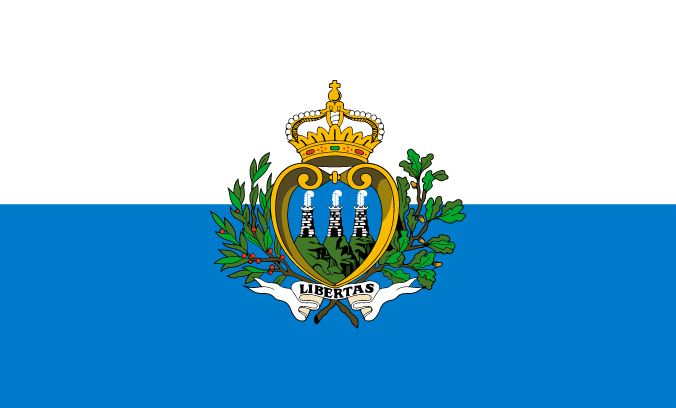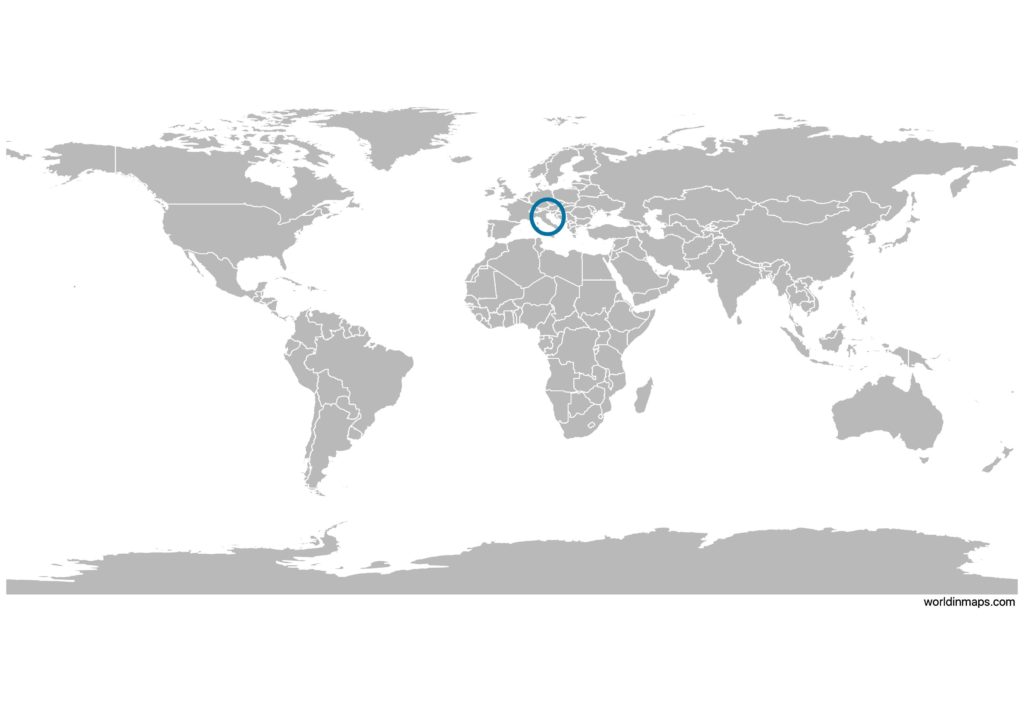San Marino

| Government | |
| Name | Republic of San Marino |
| Italian | Repubblica di San Marino |
| Government type | parliamentary republic |
| Capital | San Marino (4,044 (2018)) |
| Currency | Euro (EUR) |
| People | |
| Population (2020) | 33,938 (221st) |
| Density of population | 520 P/km2 (23rd) |
| Nationality | Sammarinese |
| Official languages | |
| Italian | |
| Ethnic groups | |
| Sammarinese | |
| Italian | |
| Religions | |
| Roman Catholic | |
| Life expectancy (2020) | |
| Male | 80.9 years |
| Female | 86.3 years |
| Total population | 83.5 years (5th) |
| Homicides | |
| Total (2011) | 0 per 100,000 people (176th) |
| Geography | |
| Land area | 61 km2 |
| water area | 0 km2 |
| total area | 61 km2 (229th) |
| Lowest point | |
| Torrente Ausa | 55 m |
| Highest point | |
| Monte Titano | 739 m |
| Land use (2011) | |
| Agricultural land | 16.7% |
| Arable land | 16.7% |
| Permanent crops | 0% |
| Permanent pasture | 0% |
| Forest | 0% |
| Other | 83.3% |
| Urbanization | |
| Urban population (2020) | 97.5% |
| Rate of urbanization | 0.67% annual rate of change (2015 – 2020) |
| Economy | |
| Labor force (2013) | 21,960 (211th) |
| Labor force by occupation (2013) | |
| Agriculture | 0.2% |
| Industry | 33.5% |
| Services | 66.3% |
| Unemployment rate (2017) | 8.1% (118th) |
| GDP (PPP) (estimate 2017) | |
| Total | $2.09 billion (175th) |
| Per capita | $60,651 (11th) |
| GDP (nominal) (estimate 2017) | |
| Total | $1.55 billion (174th) |
| Per capita | $44,947 (13th) |
| GDP by sector (estimate 2009) | |
| Agriculture | 0.1% |
| Industry | 39.2% |
| Services | 60.7% |
| Exports (2011) | $3.827 billion (118th) |
| Exports partners | |
| NA | |
| Imports (2011) | $2.551 billion (156th) |
| Imports partners | |
| NA | |
San Marino on the world map

Demography
Age structure data
Estimate for 2020:
- 0-14 years: 14.73% (male 2,662/female 2,379)
- 15-24 years: 11.64% (male 2,091/female 1,894)
- 25-54 years: 39.12% (male 6,310/female 7,081)
- 55-64 years: 14.28% (male 2,367/female 2,520)
- 65 years and over: 20.24% (male 3,123/female 3,805)
Remark: the age structure of a population affects a nation’s key socioeconomic issues. Countries with young populations (high percentage under age 15) need to invest more in schools, while countries with older populations (high percentage ages 65 and over) need to invest more in the health sector. The age structure can also be used to help predict potential political issues. For example, the rapid growth of a young adult population unable to find employment can lead to unrest.
Population from 1950 to 2020
Source: United Nations, Department of Economic and Social Affairs, Population Division (2019). World Population Prospects 2019, Online Edition. Rev. 1.
Economy
Agriculture:
wheat, grapes, corn, olives, cattle, pigs, horses, beef, cheese, hides
Industries:
tourism, banking, textiles, electronics, ceramics, cement, wine
Exports – commodities:
building stone, lime, wood, chestnuts, wheat, wine, baked goods, hides, ceramics
Imports – commodities:
wide variety of consumer manufactures, food, energy
Time zone and current time in San Marino
Go to our interactive map to get the current time in San Marino